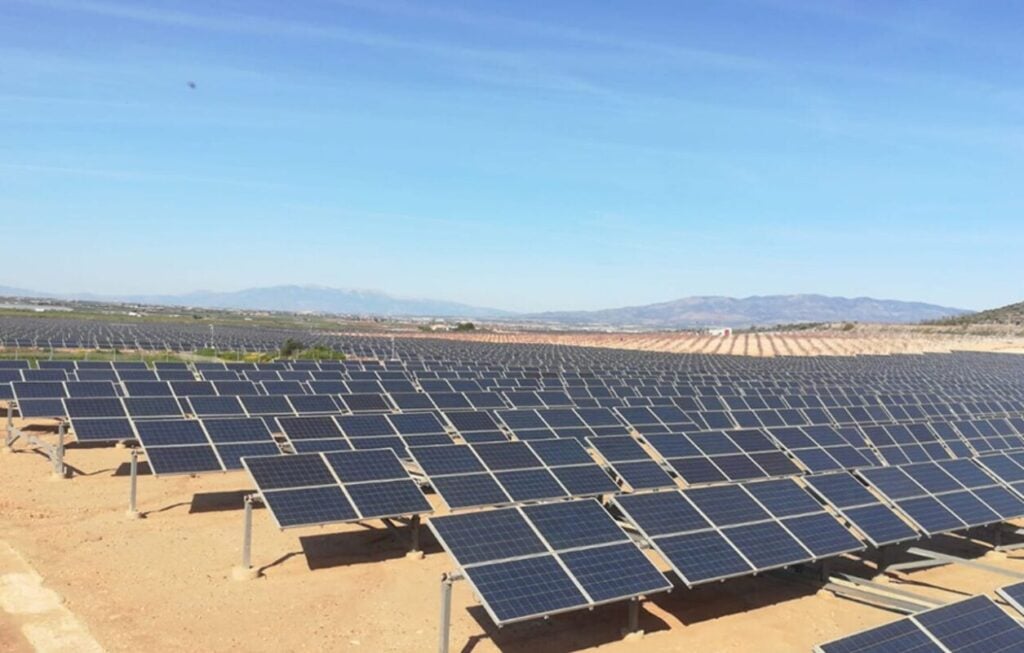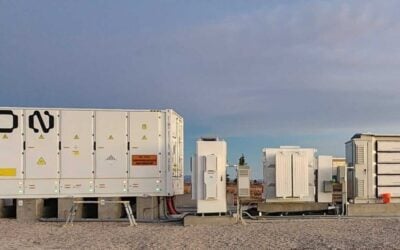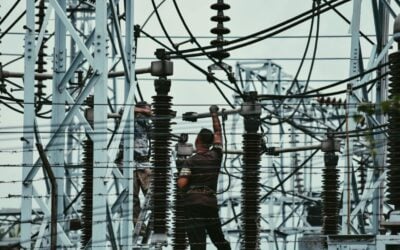
New company Lunas Energy has launched an offer for solar PV plant operators in Spain to deploy BESS on their land, as the sector struggles with curtailment and negative pricing.
Lunas Energy announced what it described as “a turnkey, zero‑capex battery energy storage (BESS) offer for owners of operating utility‑scale solar plants” earlier this week (20 October).
The company will finance, permit, build, operate and market the battery while the PV owner keeps ownership of the solar plant and receives an indexed site lease plus a share of net BESS revenues, Lunas Energy founder Seamus Brodie explained to ESN Premium.
Brodie said: “Our model lets owners unlock arbitrage, clipping recovery and ancillary services without spending a euro up front or taking on trading risk.”
Try Premium for just $1
- Full premium access for the first month at only $1
- Converts to an annual rate after 30 days unless cancelled
- Cancel anytime during the trial period
Premium Benefits
- Expert industry analysis and interviews
- Digital access to PV Tech Power journal
- Exclusive event discounts
Or get the full Premium subscription right away
Or continue reading this article for free
Lunas right‑sizes a battery, either AC‑coupled or OEM‑compliant DC‑coupled, installs it with a compact BESS pad near the MV yard, and adds metering/telemetry to separate PV and BESS revenues. Dispatch is also managed under agreed guardrails: the owner’s power purchase agreement (PPA) and O&M routines remain in place.
Brodie, whose professional background is in land development, explained that the firm is open to several different commercial arrangements. One is that the PV plant operator could simply sell the PV plant to Lunas Energy.
The second is effectively a PPA between the PV plant operator and Lunas Energy as BESS operator, where Lunas buys the power from them and sells it on the market at better pricing times, i.e. load shifting, with a meter for both sides. The PV operator could simply be paid for their power, or paid a share of the revenues and profits of the BESS.
The third is option is for the PV plant operator to get an equity stake in the BESS.
“We’re talking to one portfolio company with four projects, and they would prefer some sort of equity into the BESS because they ultimately will want to buy it, as they believe that the PV plant itself is going to increase in value just by having BESS there,” he said.
Brodie added that it offers more than 98% availability, transparent revenue and cost reporting, audit rights and optional PPA shape-upgrade mechanisms.
The firm is targeting projects in the low 20MW range because permitting is easier at that scale. It is working on eight plants of about 125MW in power rating, meaning about 500MWh of capacity. BESS projects will be financed with a combination of equity and debt on a project-by-project basis.
It isn’t yet revealing the name but Lunas plans to primarily use an established BESS technology supplier for all the projects, Brodie said. “It’s going to be one of the large BESS/EPC suppliers that can do everything. It just makes our life a lot easier if everything that we put in is exactly the same, so we can template that out.”
Viable business models
We then asked Brodie whether it was the sustained price falls in BESS technology over the last few years that had made its business model viable.
“Three years ago Spain launched subsidies. The big question now is can a financial model be made without them, and the answer is yes because the pricing has come down considerably,” he said.
The commercial model of co-locating BESS with PV to get better PPA prices and mitigate negative pricing and curtailment has also been opted for by IPP Naturgy, which last week launched construction on the first portion of a ten-site, 160MW BESS portfolio in the country. That followed similar moves by peers Galp and Iberdrola in August.
The other model—or one which can be combined with the above—in Spain is around using the capex grants available under the EU-backed €700 million (US$812.6 million) scheme alluded to by Brodie just now. Winning projects were chosen by the Institute for Energy Diversification and Savings (IDAE), which is administering the scheme, earlier this week.
There also appears to be a growing move to deploying BESS behind-the-meter for resiliency and peak shaving, possibly in light of the Iberian blackout earlier this year. Residential and commercial and industrial (C&I) BESS provider Turbo Energy announced a 366MWh order in Spain from an unnamed industrial customer in September, sending its share price soaring.





